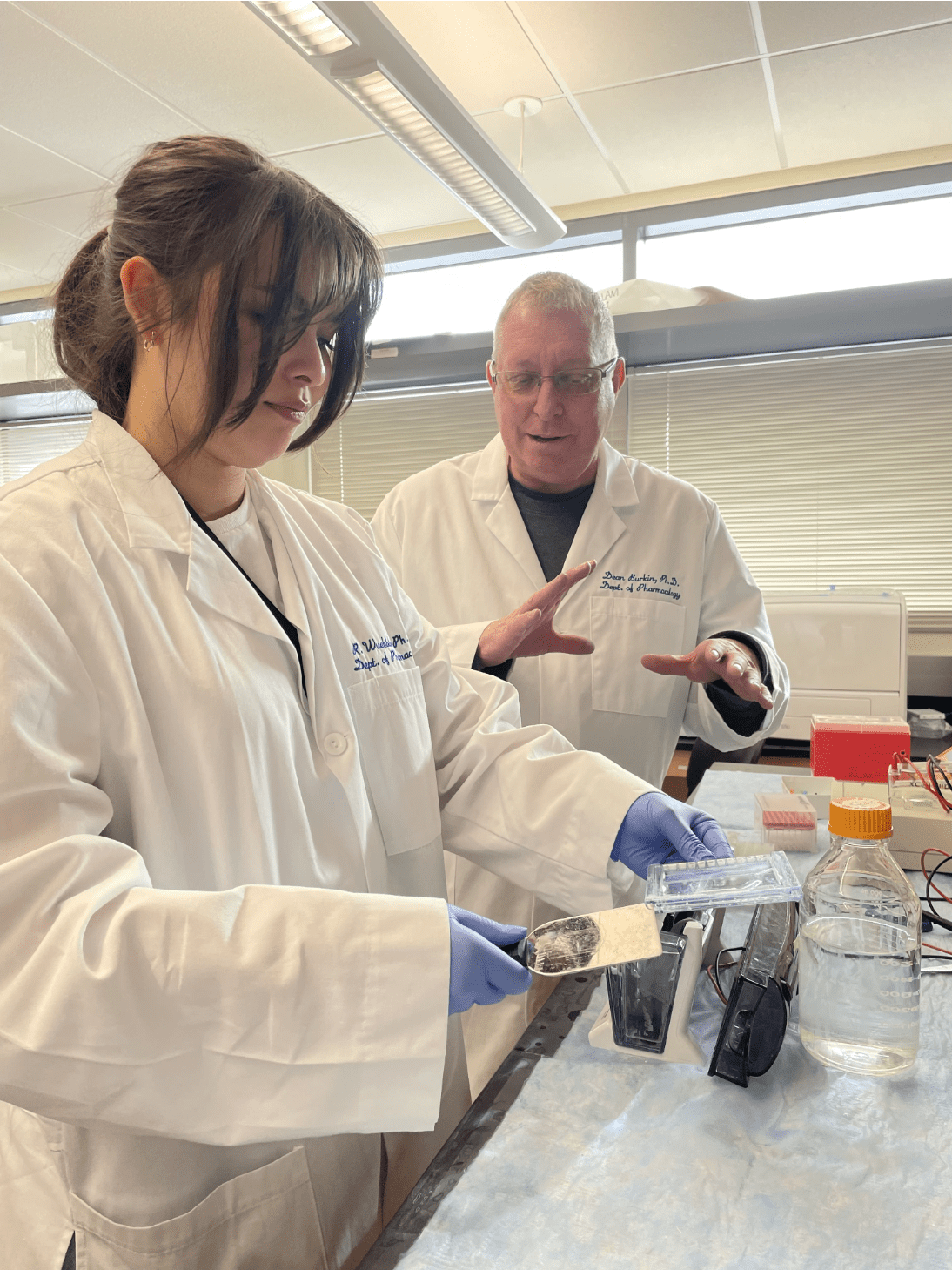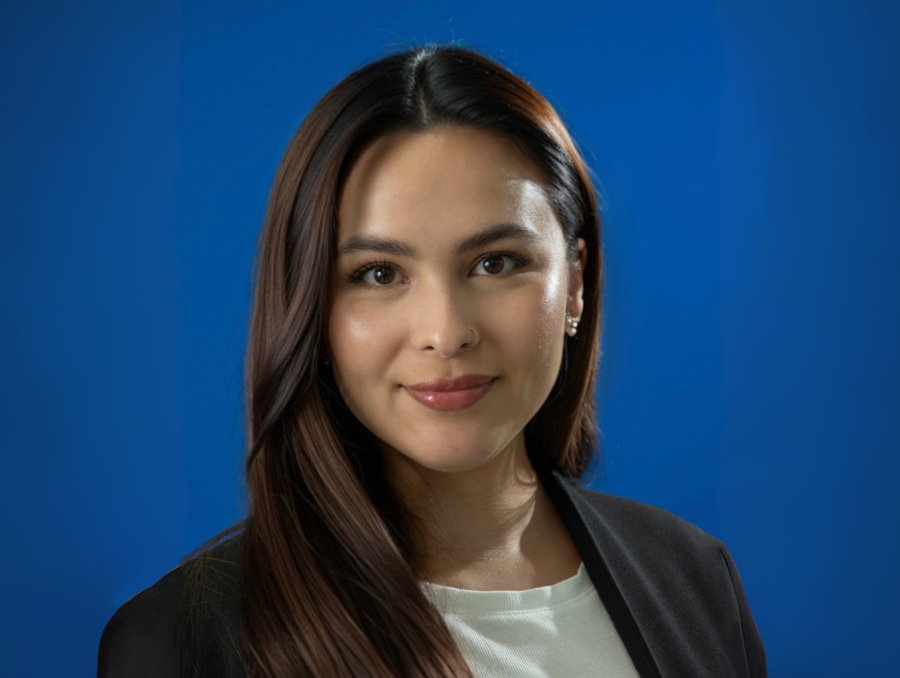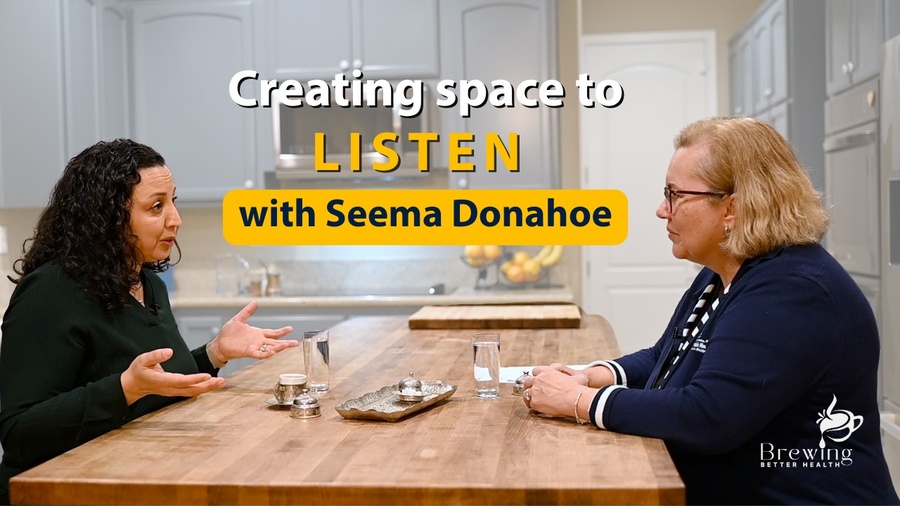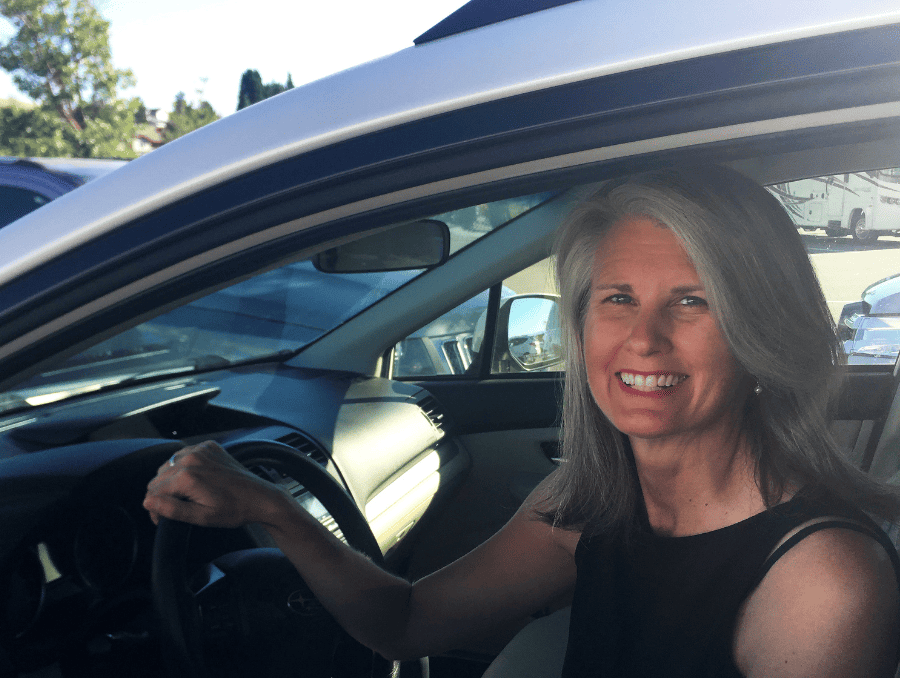As a first-generation Filipina college student, Lauren Parker has suffered from her fair share of imposter syndrome and self-doubt but chooses to use each new experience as a learning opportunity, rather than a roadblock. Her lifelong passion for learning and a desire to share knowledge led her to pursue a Ph.D. in cellular molecular pharmacology and physiology at the University of Nevada, Reno School of Medicine (UNR Med).
Currently a first-year Ph.D. student, Parker is examining how a small drug molecule affects prostate cancer metastasis. Depending on the results of this project, she intends to continue to study the effects of this drug on cervical cancer and other reproductive diseases.
As she narrows her research focus, Parker hopes to study female reproductive diseases that affect fertility as well as how to make assisted reproductive techniques less invasive and less troublesome for women.
After completing her Ph.D., Parker is interested in exploring industry research or clinical research and ultimately sees herself returning to academia to pursue teaching and a research lab.
Why did you decide to pursue research?
“I decided to pursue research because I love learning and challenging myself. From a young age, I knew that I wanted a career that involved teaching in some capacity. It wasn’t until I started college that I learned you could have a career dedicated to researching a specific area of science. When I came to the realization that I could teach and conduct research related to reproductive biology, I knew that a Ph.D. was what I needed to do so that I could one day become an academic. It is very motivating to know that I can share my knowledge in the form of teaching and in the form of contributing to the greater knowledge within scientific research.”
What is the biggest challenge you have faced in your UNR Med education and how did you overcome it?
“Being a first-generation college student and entering my Ph.D. program without a master’s has resulted in some serious imposter syndrome. It is difficult not to feel inferior when you are surrounded by classmates who have more knowledge and research experience than you. My first semester was challenging in the way that I was afraid to ask questions when it felt like I should already know the answers. I’ve come to realize that many of my classmates feel the same way as I do, we all are just really good at hiding it – and that is extremely validating.

“Additionally, all of my instructors have been very kind and even happy that I ask for help and/or clarification, which has been so relieving. Ultimately, I came to the realization that I needed to make the most of my graduate education. I acknowledge that I have so much to learn and I try my best to reframe my self-doubt by instead embracing the fact that I have an amazing opportunity to learn from my experienced peers and from the well-respected experts in my program."
What specialty or area are you most passionate about pursuing, and what draws you to this field?
"I am incredibly passionate about reproductive biology. Specifically, I am interested in studying female reproductive diseases that affect fertility and how to make assisted reproductive techniques less invasive and less troublesome for women. It sounds cheesy and simple, but what drew me to this field is the fascinating way that life is formed. It is mind-blowing to me that you can take a male and a female gamete, cells that we can’t even see with the naked eye, and when you bring them together, they hold the instructions for creating a human being."
Can you share a memorable experience during your training that has significantly impacted your journey?
“As I was getting to know everyone in my first lab rotation, I was talking with our Research Associate Professor about my past research experiences and how I felt I was not allowed to make any mistakes. He told me ‘You’re going to make some mistakes, that’s inevitable, but you learn your best when you make mistakes and fail,’ and that was so reassuring to hear.”
What advice do you have for future students interested in pursuing research?
“Always be kind and try your best to attend/participate in your program’s events – even if you think it’s not related to your research/goals or if you think it might be boring. It’s really important to show your face and to be a somewhat active member of your program. Being kind and showing up can bring you more opportunities than you might think.”
















